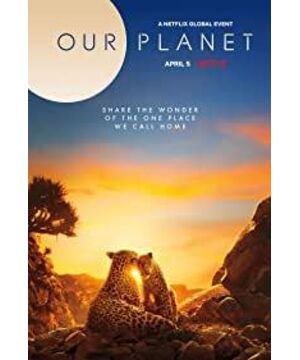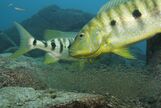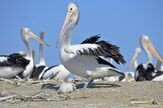Five Steps to Help Save Our Planet
https://www.ourplanet.com/en/what-can-i-do
1. Make Your Diet as Plant-based as Possible
2. Shop for Sustainable Fish and Meat
3. Switch to a Clean Energy Provider
4. Choose Deforestation-free Palm Oil Products that do not harm the forest
5. Buy Wood and Paper Products from Well-managed Forests
why? (The following content is based on self-checking information)
1. Make Your Diet as Plant-based as Possible
A report issued by the United Nations "International Group on Sustainable Resource Management" on June 2, 2010 even issued a controversial appeal: People's diet should be changed significantly: from animal protein-based to more vegetarian Changes in the direction to reduce environmental pressure.
According to United Nations reports and scientific evidence, in terms of global warming, methane is 21 times more harmful than carbon dioxide, and nitrous oxide is about 300 times more harmful than carbon dioxide. Livestock are the primary cause of methane production, and nitrous oxide is also a by-product produced by livestock. Eating meat requires raising many livestock animals, and livestock emit methane. For example, a cow can produce up to 60 liters of methane a day. Approximately 25% of the methane in the atmosphere is emitted by livestock raised in animal husbandry. If the main source of methane can be controlled, the climate can be adjusted, floods can be prevented, and it is also the best way to deal with soil loss.
More than half of the water used in the United States is directly used to irrigate pastures to raise livestock, and a large amount of water is used to wash livestock stalls. On average, producing one pound of meat consumes the equivalent of a month's water consumption of an average household. The water used to produce a unit of meat food is much higher than the water used to produce the same unit of plant food. Such water use can cause serious economic and ecological impacts. Studies have pointed out that large amounts of water use threaten the economic development of the seventeen western states of the United States and drastically reduce the amount of water available for power generation, reducing the amount of electricity produced in the area and causing the price of electricity to rise. Eating meat wastes a lot of water, and the remaining water may be polluted. The total excrement produced by American livestock is twenty times the total excrement of the entire nation. However, nowadays, people rarely use animal excrement to fertilize fields, and most of them are discharged into waterways. As the untreated excreta gasifies into ammonia and nitrates, more and more water contains nitrates, which may cause brain damage and even death in infants.
Information from Wikipedia
2. Shop for Sustainable Fish and Meat
Sustainable seafood, also referred to as sustainable seafood and environmentally friendly seafood, refers to a type of seafood that is caught or cultivated in accordance with sustainable development strategies. Sustainable seafood guarantees from the source, so that whether it is harvested or farmed seafood, its output can be maintained without affecting the ecosystem of its source.
The sustainable seafood movement has considerable influence in Europe and North America. This is because more and more people are aware of the harmful effects of overfishing and environmentally harmful fishing methods on the environment. At present, there are many sustainable marine certification agencies in both places, providing certification services for the production and sale of sustainable fishery products. However, in Asia, after years of hard work in related sports, the results are still limited. The WWF launched the "Seafood Selection Campaign" in 2001, and the Hong Kong branch only began to participate in 2007 to educate the public about the effects of "unending appetite on fish and marine ecology."
The information comes from Wikipedia . You can search for the sustainability of a certain fish on this website: http://www.ifishonline.org/#/
3. Switch to a Clean Energy Provider
Clean energy, clean energy or green energy refers to energy that does not emit pollutants. In the United States, many states have adopted plans to encourage the production of clean energy from wind, solar, and nuclear energy. In particular, nuclear power remains an attractive option for many countries seeking clean energy policies because it can generate electricity without generating any greenhouse gas emissions.
The similar definition is renewable energy , which refers to energy with renewable raw materials, such as hydropower, wind power, solar energy, bioenergy (biogas), geothermal energy, ocean tide energy, sea temperature difference power generation, etc. At present, the two are almost in agreement. Renewable energy does not have the possibility of energy exhaustion, so it is increasingly being valued by many countries, especially countries with energy shortages.
It is worth noting that hydropower and solar energy are not green energy sources, because the process of building reservoirs and manufacturing solar panels will pollute or even destroy the environment. It should be used after careful evaluation.
Nuclear power generation consumes uranium fuel, has large reserves, can be used for hundreds of years, and has mature technology. However, despite the mature technology, almost all countries, including those with the most advanced technology and management, cannot guarantee the absolute safety of power stations (of course, any Energy stations are not absolutely safe, and even reservoirs are in danger of collapse.)
Information from Wikipedia
4. Choose Deforestation-free Palm Oil Products that do not harm the forest
Palm oil has been criticized by environmentalists in recent years. This year alone, companies including Nestlé, Marks and Spencer, General Mills and other companies have expressed their stance on the use of palm oil. Oppose the destruction of the primitive rainforests and biodiversity in Southeast Asia.
Many countries in Southeast Asia use palm oil as a source of agricultural income, especially Malaysia and Indonesia. The related controversy recently stemmed from a YouTube video mocking Nestlé’s KitKat product advertisement. This video was produced by "Greenpeace". An employee opened the KitKat chocolate package, hoping to "relax", but it was not the chocolate biscuit, but the fingers of the orangutan that bit off. The following film was also shot by the organization, which opposed Nestlé’s use of Indonesian palm oil produced by non-sustainable methods.
Information from GlobalVoice
5. Buy Wood and Paper Products from Well-managed Forests
Controlled wood refers to wood produced from forests managed in accordance with sustainable development standards. The forest is certified and supervised by a third party and meets the standardized management forest standards defined by an independent organization.
Certified wood and paper products come from responsibly managed forests – as defined by a particular standard. With third-party forest certification, an independent organization develops standards of good forest management, and independent auditors issue certificates to forest operations that comply with those standards.
Information from Wikipedia
View more about Our Planet reviews








